|
Our legal system is adversarial, hardwired to produce winners and losers. The rules for picking winners and losers are open to interpretation and are prone to human error, bias, and corruption. Human error, bias, and corruption are why records are kept of proceedings, why those records are available to the public, and why a losing party can usually appeal an adverse decision to a higher authority.
A losing party often loses sight of these fundamental facts and overlooks the possibility of challenging a wrong decision. Whether you can afford further action or whether the legal climb is too steep, reviewing your legal options should be automatic. This check is particularly important in tariff classification. Picking the correct number under the Harmonized Tariff Schedule of the United States (HTSUS) is important not only for importers seeking lower duties on their imported merchandise, but also to avoid penalties from US Customs and Border Protection (CBP). That agency every day issues classifications rulings or otherwise determines the proper classification upon liquidation. Importers seldom challenge these decisions because the deem the exercise to be futile. Often the exercise might pay off. On August 24 of this year, CBP published in the Federal Register twenty-one modifications and revocations of previous classification rulings, nine on August 17, seven on July 6, and eight on June 22. That is not even counting the CBP classifications overturned by the courts. These numbers strongly indicate the potential benefits of challenging a CBP classification decision. Tariff classification is complicated and arguing for a certain HTSUS provision requires an experienced legal advocate with a record of success. Please let us know if you require our assistance.  Do you hate, just hate paying antidumping duties knowing that your competitors don’t? Or, even if you don’t pay antidumping duties, does it bother you that some companies evade laws designed to protect our domestic industries from what our country considers foreign economic predation? Now you can do something about it. On August 22, 2016, U.S. Customs and Border Protection issued interim regulations that force it to formally investigate claims of evasion of antidumping or countervailing duty order. The public has forty-five days to submit comments. The new rules aren’t called whistleblowing, but that’s what they are. If you are an interested party, you will be able snitch on someone who you think is evading antidumping duties and CBP is required to keep you in the loop as it investigates. CBP is authorized to extend its investigative tendrils out to foreign parties and will draw negative inferences if those parties aren’t cooperative. If CBP uncovers evasion, among other things, it will suspend liquidation and likely penalize the importer and other parties involved in the evasion. Only “interested parties” will be able to report evasion, but include a wide range of entities. Importers and foreign producers of covered merchandise qualify, but so do domestic manufacturers, producers, wholesalers, labor unions, and trade or business associations if these entities are directly associated with a domestic like product. Other government agencies can also report evasion. You won’t be able to report evasion anonymously and you don’t share in any antidumping duties collected, although you may ask that your business information be kept confidential. CBP is required to assist small businesses in preparing and filing evasion reports. Our September 21st webinar on Antidumping Duties will cover this topic in more detail. 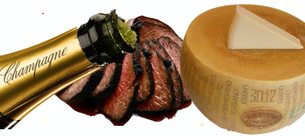 You know what sticklers we here in the U.S. are about protecting intellectual rights and how we bemoan the ocean of counterfeit imports flooding into our country? The funny thing is that our fastidiousness can be selective. Larry Olmested, a writer for Forbes, wrote a book called Real Food, Fake Food that reviews some of the foods that we Americans think we consume but we actually don’t. I can pretty much confirm that I have never had real Parmesan Cheese, and neither have you. Sure, waitpeople shave pungent blocks over our pasta to enhance the taste and restaurants call the block and shavings Parmesan, but it probably isn’t real Parmesan. Now if we were eating in Europe and we ordered Parmesan, restaurants would be legally be prevented from serving Parmigiano-Reggiano that wasn’t from a certain region in Italy. By the way, the 80 lb. wheel of Parmigiano Reggiano pictured above goes for $2,499 on Williams-Sonoma’s website, which may help explain why US citizens do not much complain about buying knockoffs. I cannot include myself in that group because I am a vegan and do not consume dairy products. The current issue of Newsweek has an article on Kobe beef. For most of the past decade and a half, the USDA made it illegal to import Kobe beef, which really can only be raised in Kobe Japan. Even when the ban was lifted almost none of the valuable meat made it to the USA. Japan barely exports any to our country and only to a handful of licensed restaurants. That’s not to say that you can’t easily find people selling Kobe-style cuts or Wagyu beef. Wagyu is the type of cow that ranchers in Kobe, Japan raise. The prices for non-Japanese brands vary tremendously and there really is no one policing to see if what you buy is actually Kobe Beef. There are online sellers who claim that they import Kobe certified steaks from Japan for about $500 a steak, but are the claims legitimate? Again, I’m vegan so I may be the last person on earth who to ask. You may have sipped bubbly on New Years Eve that everyone calls Champagne, but it probably wasn’t real Champagne. Like Parmesan and Kobe Beef, Champagne refers to a unique product produced in a very specific region in a foreign country. The region is the eponymous producer of the product, as with Kobe and Parmesan. In this instance, the region is Champagne, France. The intellectual property at issue is called a geographical indication, a type of trademark. The U.S. recognizes some GIs, including Idaho Potatoes, Florida Oranges, Napa Valley Vines, and Washington State Apples. Cognac is one of the few foreign GIs that our country recognizes. There is a Champagne Bureau in Washington, D.C. that lobbies to convince our country to legally allow only Champagne from Champagne, France to be labeled. “only wines made from the grapes grown and harvested in Champagne and then produced under the strict regulations of the Champagne appellation can bear the Champagne name. This unique location – called terroir in French – is integral to the wines that are produced and that is why the Champagne community and quality wine producers worldwide call for the all wines that bear the Champagne name to only come from Champagne, France.” The French’s frustration is palatable (like everything else French). They probably don’t understand why the U.S. continues to allow its citizens to drink fraudulently (from their vantage) labeled sparkling wine. The Champaign Bureau laments: “While most quality winemakers around the world do not misuse geographic indications, that is not the case in the United States. The Champagne Bureau, USA remains committed to promoting and protecting the Champagne name worldwide and is working with U.S. consumers, trade, and negotiators to ensure that the Champagne name is protected in the United States and that all mislabeling of U.S. sparkling wine is permanently banned in the United States.” I would drink to that, but I don’t drink. I wonder if Tofu is a region in China? 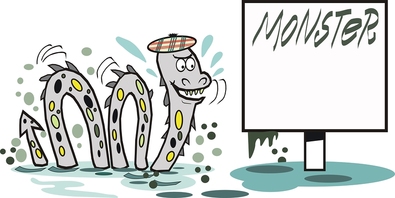 Let's talk monsters, Nessie to be specific, the cutesy nickname for the Loch Ness Monster. Ok, I don't really mean the Loch Ness Monster. I mean NESI, a rule of interpretation for classifying imported goods under the Harmonized Tariff Schedule of the US. NESI stands for not elsewhere specified or included. Because I've never actually heard anyone say it out loud (I try to avoid social gatherings that would permit such unseemly language), my guess is that NESI is pronounced the same as Nessie. Even if it is not pronounced the same way, but is instead enunciated letter by letter, like F-B-I, as we shall shortly see, NESI shares spooky similarities with Nessie, the reclusive Scottish plesiosaurus. Did I get you in the proper Halloween spirit? Good. But why even talk about NESI or rules of interpretation? Because you will find them everywhere when classifying imports or exports. Rules of interpretation help you classify things, to distinguish why something belongs here and not over there. The classification and naming process in science is called taxonomy and there is no doubt (climate change deniers are excused from the room at this point) that science advances dramatically and consistently thanks largely to its taxonomy. The law is altogether a different universe. In the law, the rules are called canons of construction or rules of interpretation. These rules don't even come close to being absolute; they're not even consistent. Heck, they are meant to be used as contrarian weapons, such is the beauty of our adversarial system. For each rule of interpretation that points you in one direction, you will find another one, equally valid, that points you in the opposite direction. Think of original intent vs the plain meaning. If you think the original drafters of a law favor your side, and especially if they look and act like you, you will argue original intent. But if that vantage is not to your liking, you'll claim that there is no reason on earth that anyone should ever go beyond the four corners of the text. Or you may want to be invoke a rule that requires you to go outside the text to elucidate the true meaning or contemporary relevance. Dictionary definitions are the most common manifestation of this tactic. I haven't even gotten to exceptions and exemptions, the "wait a minute, this rule doesn't apply if..." get-out-jail cards that lawyers and judges keep in reserve if cornered. The law also accommodates tie breakers, like course of dealing and usage of trade, which would seem to be helpful in choosing between competing sides, but tie breakers are just as prone to abuse and subjectivity as any of the other rules. Which brings us to classification of exports and imports. There is a great deal riding on your product's classification. On the export side, it determines whether you need a license or whether you can even ship. On the import side, it will determine how much you pay in duties and whether your product can be held up at the border for using someone else's classification without their permission, in other words, whether you are infringing. Given the huge stakes, the law dedicates a ton of grey matter arguing over classification. A government agency will issue a written classification ruling if properly asked before the shipment is made and if the requesting party truthfully discloses all pertinent facts. These rulings tend to be peppered with rules of interpretation, sometimes even italicized Latin ones like ejusdem generis to add legal gravitas to the agency's pronouncements. While I may be cynical about the over reliance on rules of interpretation, I concede that they can sometimes be helpful. There is value to their existence. Most of them, anyway. But NESI and its NES, its counterpart when classifying exports under the Commerce Control List (NES stands for not elsewhere specified) are pointless. I don't get why they even exist. I can't find one ruling or court case that uses them. They are as camera shy as the real Nessie. And why should the courts or agencies use them? NESI and NES literally mean, "don't classify your stuff here if you can find a better classification elsewhere." That's helpful. Not. That's like being lost in the woods and coming across a sign that reads, "don't stick around here if you can find a better place." At least the Loch Ness Monster is fun to think about. Not so NESI or NES. In seasonal parlance, NESI and NES are pure trick without the slightest trace of treat. However, there is a bright side to these two rules and to the other rules of interpretation. They reveal that classifications are not set in stone. There is almost always room for interpretation. There is usually an opportunity to advocate for a classification that benefits you even in the face of legal precedent to the contrary. Just because the federal agency has rulings in one direction does not mean those rulings aren't prone to legal challenge. Federal agencies and the courts make mistakes. That is why U.S. Customs and Border Protection issues and publishes revocations of earlier classification rulings. The agency is simply confessing error. Audit your current classifications to find hidden opportunities. You must audit your classifications anyway to ensure reasonable care, why not go a little beyond? When asking a federal agency to classify your products, consider it as a opportunity to argue for the classification that you want. Treat your classification request like a brief in a lawsuit, full of arguments and evidence to advance your cause. Consider tariff engineering your product to take advance of lower or no duty rates. Don't be immediately dissuaded by previous rulings that do not seem to favor you. Hire a lawyer who knows how to advocate on your behalf. You'll find it's worth the effort and investment. You can make NESI, NES, and the other rules of interpretation work in your favor if you are smart. You may one day echo Boris Karloff's sentiment when he said, "The monster was the best friend I ever had." Her name is Lydia Rodarte-Quayle (portrayed by Laura Fraser). She uses her position in a German multinational to supply a rare chemical precursor to Walter White, aka, Heisenberg, the Blue Meth King. Calculating and absorbed with risk analysis, Ms. Rodarte-Quayle is somehow disdainful of the body count in her wake, other than being utterly paranoid that she might join its ranks or be mentally scarred by catching a glimpse. She is persnickety about the sweetner and soy milk in her chamomile tea. It is this finickiness and her devotion to routine that will be her undoing. We last see her coming down with a bad cold as an Aryan psychopath nips at her designer shoes while she dreams of expanding her empire into the Czech Republic.
 Did you know that under federal law, CBP must give reasonable notice if it wants to examine any records? See 19 USC §1509. Did you know that under federal regulations, CBP must give 30 days' written notice and that CBP can give less than 30 days' written notice only if the entry records are required in connection with a determination regarding the admissibility or release of merchandise? Did you know that under federal regulations, CBP is allowed to verbally request entry records, but that any such demand shall be followed by a written or electronic demand? See 19 CFR § 163.6. |
Oscar Gonzalez
Principal and a founding member of GRVR Attorneys. Archives
September 2016
Categories
All
|
- Home
- Who we are
-
Our Practice
- Customs and Import
- 301refunds
- Export
- Litigation
- Section 232 and 301 Tariffs
- Outsource Your Classification
- CBP Audits
- Fines, Penalties, Forfeitures, and Seizures
- Customs Brokers
- C-TPAT >
- Foreign-Trade Zones
- Antidumping and Countervailing Duties
- Intellectual Property RIghts
- Foreign Corrupt Practices Act
- Manifest Confidentiality
- Contracts and Incoterms
- False Claims Act and Whistleblower
- Blog
- Resources
- Calendar and Events
- Best Customs Broker Exam Course
- Contact
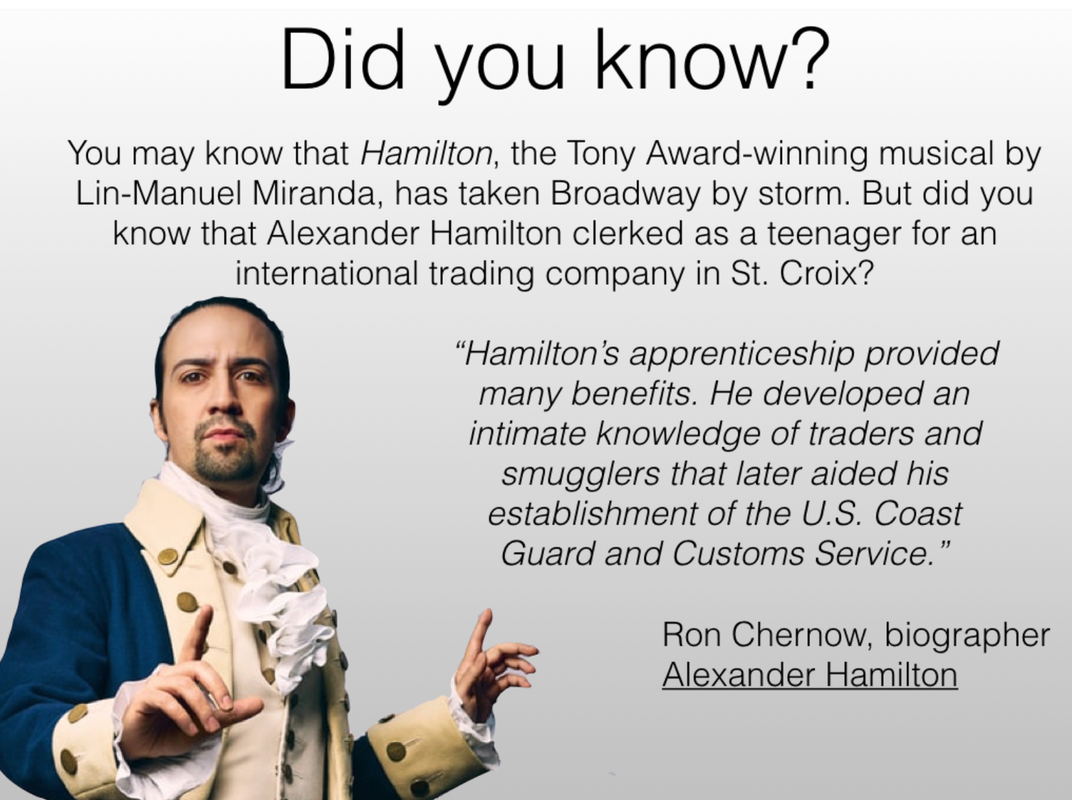

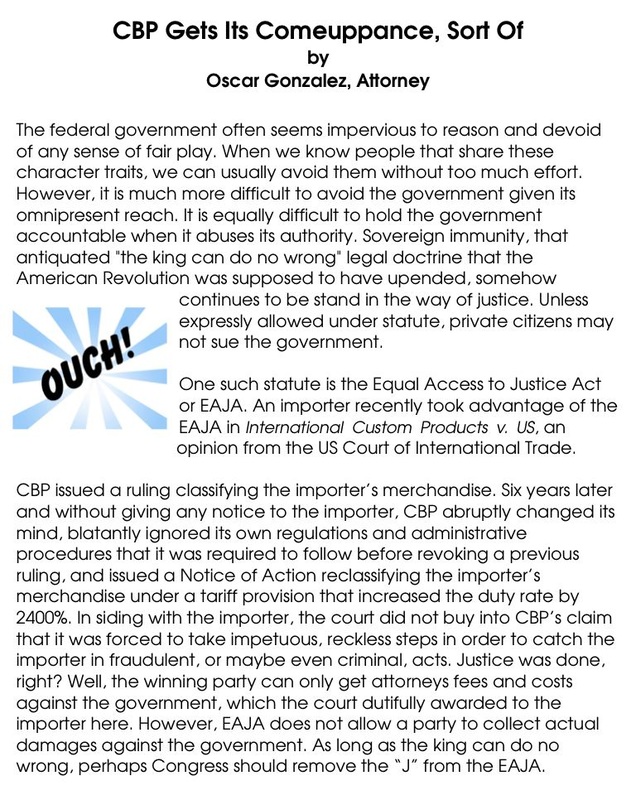

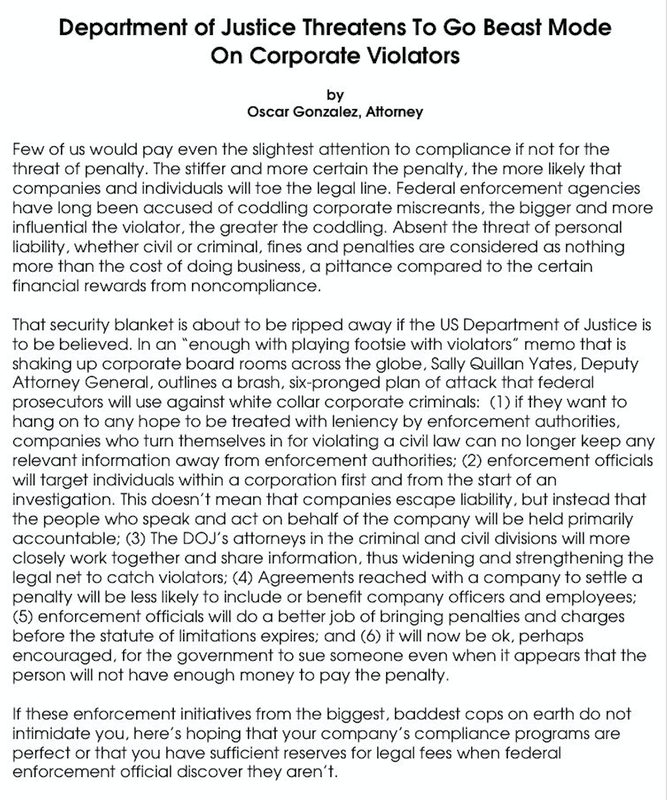

 RSS Feed
RSS Feed
